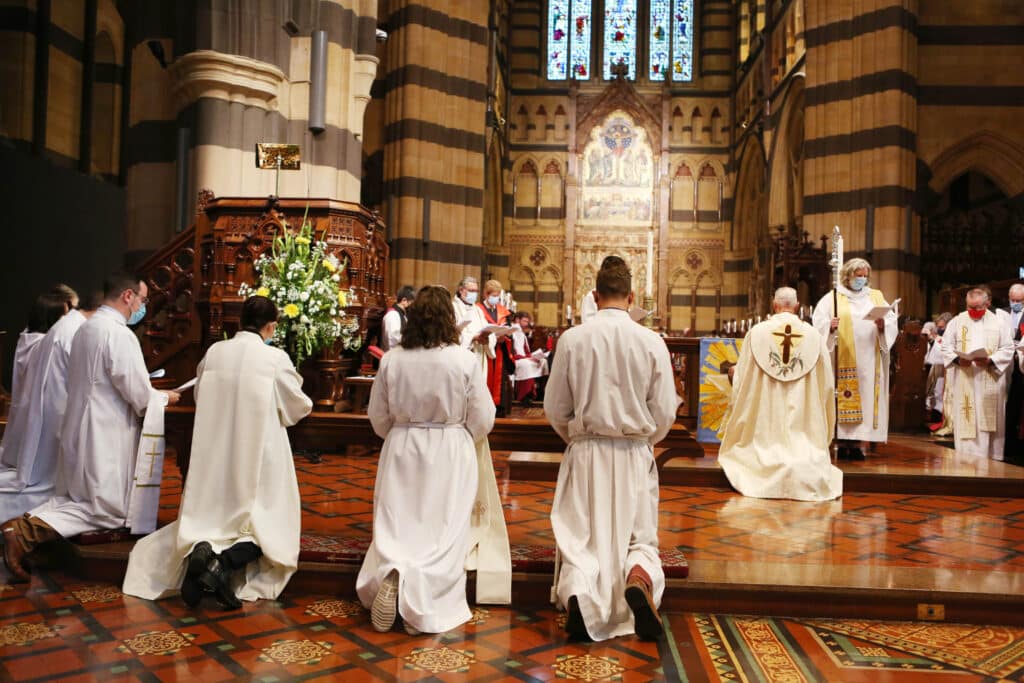
Kate Beer and Richard Trist
20 August 2024
As all ministers become required to take part in professional supervision, many church members are asking “Why?”
It’s an extra cost, budgets are tight. Understandably, many want to know “What will this achieve? How can we defend this extra expense … especially for a part-time lay minister?”
Whether ordained or lay, full time or part time, there is little doubt that ministry is a demanding calling. Authors Peter Hawkins and Robin Shohet write that by the very nature of the role, those in helping professions like ministry are at constant risk of importing distress, disturbance, fragmentation and need. How do pastors and lay ministers contain it all? Expected to maintain an ever-deepening capacity for the needs of others, alongside whatever challenges their own lives may already hold, there is little doubt of the need for support. Wellbeing surveys of clergy bear out what we already know.
Read more: Why professional supervision can help ministers through the burnout burden
But what sort of support mechanisms will be most effective? We want to suggest that professional supervision, of the type normally practiced in helping professions such as counselling, social work and psychology, is unique in its capacity to meet the specific needs of clergy and lay ministers.
Why professional?
It has been said that if a church worker is not getting professional supervision, they are getting it unprofessionally!
Whether in the daily debrief with their spouse, or an ill-thought word in a conversation, meeting, or sermon, what cannot be contained leaks out, unconsciously, and sometimes with serious consequences. Those hurt most may be the very people the ministry had intended to serve. What clergy and lay ministers need goes well beyond provision of an appropriately bounded space for reflection and professional disclosure. Critically, clergy and lay ministers must also be supported to grow their capacity to provide reliable containment to the broad range of confidential matters they handle daily. For this task, supervisors must be trained specifically in ways that go well beyond the general ministry experience of someone “older and wiser”.
Why independent?
In many occupations the term “supervision” is synonymous with line-management. However, in the so-called helping professions the term is used to speak of an independent, consultative relationship between worker and an external supervisor who is neither the supervisee’s trainer nor manager. Far from “snooper-vision”, as someone called it (which would primarily serve the organisation), external supervision is practiced for the sake of those being served by the worker. Critically, the Royal Commission into Institutional Responses to Child Sexual Abuse recommended that to be effective, religious ministers need oversight “with a trained professional or pastoral supervisor who has a degree of independence from the institution within which the person is in ministry”. The accountability of this sort of supervisor is not to a boss such as a bishop or Board of Management, but rather to the ethical and theological frameworks in which the work or ministry is being undertaken (e.g. Faithfulness in Service). Professionally recognised supervisors are also accountable to an independent ethical code for the supervision they offer.
Why supervision?
The discipline of spending structured intentional time reflecting on experiences past, for the sake of a better future, has always been seen as essential for Christian ministry. Likewise, the idea of doing such reflecting with another is not new. “As iron sharpens iron, so one person sharpens another” (Proverbs 27:17). However, a benefit of professional supervision lies in its ability to bring clarity and focus from different viewpoints. In Pastoral Supervision: A Handbook authors Jane Leach and Michael Paterson explain the three necessary characteristics of supervision:
1. Formative – an educative aspect offering knowledge, equipping and resourcing.
2. Restorative – providing a compassionate place for processing demands and “recharging” emotional and spiritual energy.
3. Normative – attending to issues of wellbeing, boundaries, and professional expectations.
Read more: It’s a huge part of ministers’ jobs, St John’s wants to help them do it better
In mandating supervision, the value of other modes of support is not dismissed. In different seasons of their ministry career, a ministry worker might complement supervision through using counselling, spiritual direction, coaching or mentoring.
Is supervision effective?
Studies are showing the adoption of supervision is having a far-reaching impact for the good of the church, leading to growth, learning, support and healthier ministers and ministries. In a pilot study of clergy in the Diocese of Sydney, over 90 per cent agreed that professional supervision (either one-to-one or in a group) was helpful for their ministry and personal well-being, leading to a greater ability to be reflective and self-aware. Seventy-five per cent of participants indicated that it developed their ability to be resilient.
Another survey of clergy undertaken in the Diocese of Newcastle included the following responses:
“[It] has helped me to ‘stand back’, see the big picture; [it] has helped me to deal with difficult situations and people … provided a sounding board and reassurance I am doing OK!”
“Given me tools for a different approach. Helped me to grow personally and professionally. One cannot harbor self-delusions, arrogance, theological infallibility…when one allows oneself to be subject to the insightful scrutiny of another.”
Supervision offers ministry professionals much more than just another something they must do. Rather, professional supervision interrupts unhealthy patterns, while supporting restorative reflective practices which cultivate deepening competency.
While only the ministers go to the sessions, supervision serves the whole body of Christ. Supervision strengthens safety and containment, enabling a greater fulfilling of the call of God. As clergy and lay ministers engage with supervision, they are offered the chance to connect, reflect and choose how they will respond moving forward. This is no less important for the part-time youth minister dealing with a distressed teenager than it is for the full-time cleric. Supervision grows capacity for the heart of all ministry leadership: “…to prepare God’s people for works of service, so that the body of Christ may be built up” (Ephesians 4:12).
Kate Beer is a lecturer in Practical Theology at Ridley College, currently program lead for the Graduate Certificate of Professional Pastoral Supervision.
Richard Trist is Adjunct Lecturer in Professional Pastoral Supervision and Chaplain to the Anglican Institute at Ridley College.
For more faith news, follow The Melbourne Anglican on Facebook, Instagram, or subscribe to our weekly emails.







